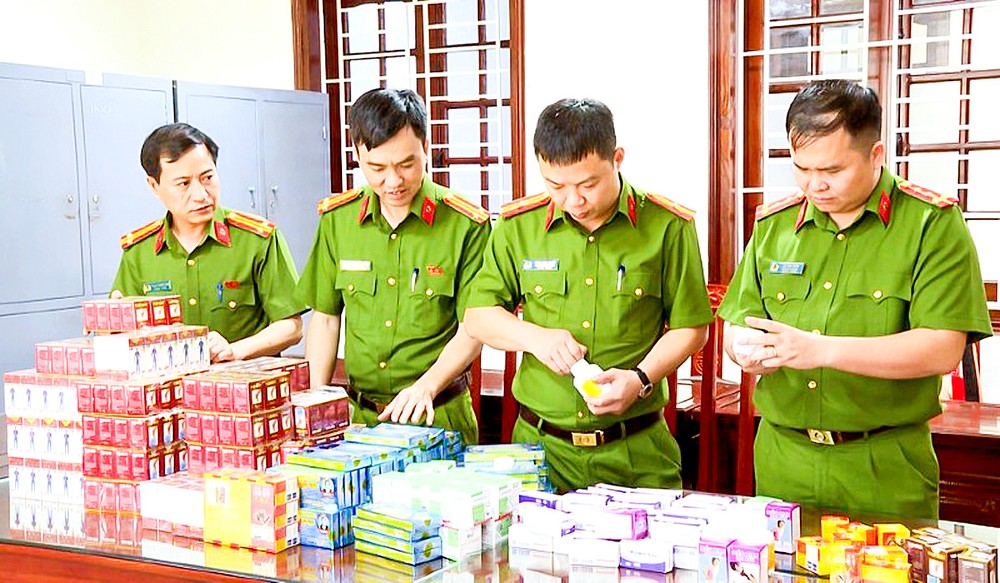A representative from the Drug Administration Department of the Ministry of Health spoke to the media that police force in Thanh Hoa Province has broken up a significant counterfeit drug production and distribution operation, which involved several types of counterfeit medications that had received official circulation licenses.

According to initial information, police have seized counterfeit drugs that were primarily sold online or through certain pharmacies, rather than through the public hospital system, due to a lack of proper documentation.
The Drug Administration Department admitted that among the 21 types of fake drugs and bone and joint medicines seized by the police, four had been licensed for circulation including 44 boxes of Tetracycline, 40 boxes of Clorocid, 49 boxes of Pharcoter, 52 boxes of Neo-Codion.
The criminals named the remaining product types, and the Ministry of Health had not granted circulation registration certificates for any similar drugs.
Prior, police force in Thanh Hoa Province announced the successful bust of a large-scale counterfeit drug production and distribution ring, led by Nguyen Tien Dat in Hanoi's Thanh Xuan District on April 16. Police conducted urgent searches at six locations used for production, operations, and storage across Hanoi, Ho Chi Minh City, and the provinces of Vinh Phuc, Hung Yen, An Giang, and Dong Thap.
Through the search, the police force seized 21 types of fake pharmaceuticals and bone and joint medicines. Along with that, there were also raw materials for the production of fake drugs, including more than 18,000 boxes of various types, 142kg of pills, tablets, powders, and many machines and equipment for the production of fake drugs.
The total weight of fake pharmaceuticals and raw materials for making fake pharmaceuticals was nearly 10 tons.
In response to public concerns regarding the Nutri Brain IQ food supplement—manufactured by Aura Care Nutrition Joint Stock Company in Phu Man Commune of Hanoi's Quoc Oai District and distributed by Hoang Gia International Trade and Investment Complex Company —for allegedly promoting the product with misleading claims as a “miracle drug” for autism, the Food Safety Department under the Ministry of Health requested the bureau of food safety in the capital city to conduct an inspection on April 17.
Public complaints have raised concerns regarding Hikid milk's advertising practices, alleging potentially exaggerated claims that may violate advertising regulations. Specifically, comparisons such as "100g of Hikid equals 20 liters of fresh milk" have drawn criticism.
Furthermore, the advertising content frequently appearing on social media platforms, including the assertion "Hikid - No. 1 in height" and the utilization of celebrity endorsements and images of medical professionals to enhance credibility, has also been subject to scrutiny. These practices have led to accusations of misleading advertising and potential breaches of ethical marketing standards.
The food safety watchdog warned that the comparison may mislead consumers, particularly parents, into believing Hikid milk has far greater nutritional value than regular fresh milk. However, Hikid milk is merely a supplementary food and cannot replace a child's primary diet or produce the miraculous effects claimed in its advertising.
























